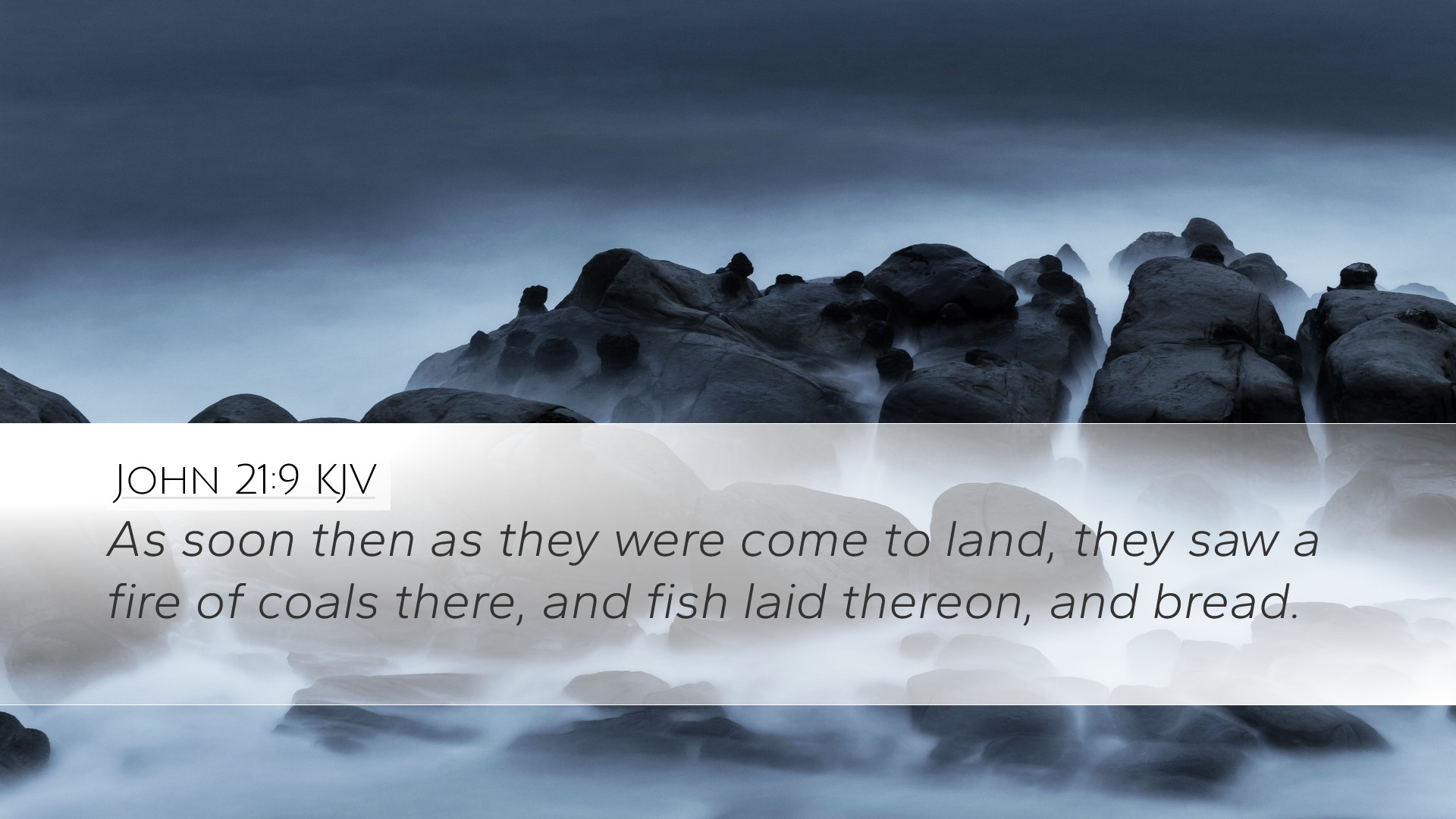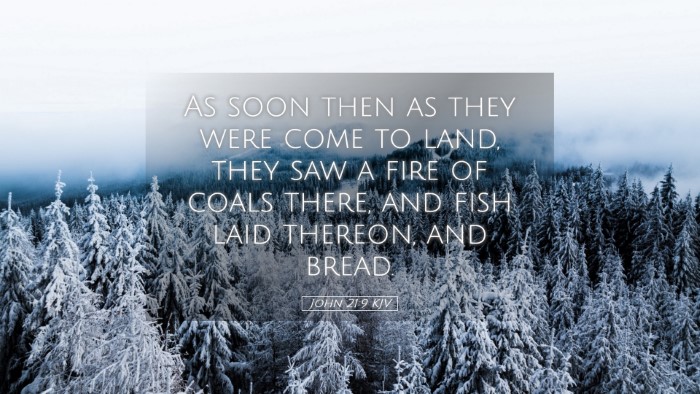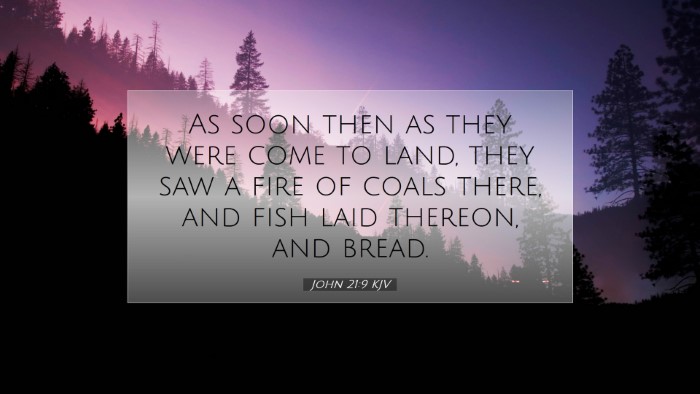Old Testament
Genesis Exodus Leviticus Numbers Deuteronomy Joshua Judges Ruth 1 Samuel 2 Samuel 1 Kings 2 Kings 1 Chronicles 2 Chronicles Ezra Nehemiah Esther Job Psalms Proverbs Ecclesiastes Song of Solomon Isaiah Jeremiah Lamentations Ezekiel Daniel Hosea Joel Amos Obadiah Jonah Micah Nahum Habakkuk Zephaniah Haggai Zechariah MalachiJohn 21:9
John 21:9 KJV
As soon then as they were come to land, they saw a fire of coals there, and fish laid thereon, and bread.
John 21:9 Bible Commentary
John 21:9 - Commentary Summary
Verse Text: “Then, as soon as they had come to land, they saw a fire of coals there, and fish laid on it, and bread.”
Contextual Analysis
This passage occurs after the resurrection of Jesus, where He reveals Himself to His disciples at the Sea of Tiberias. The disciples had been fishing all night without success, symbolizing their spiritual barrenness before encountering Christ. This event underscores the direct relationship between obedience to Christ and the abundance He provides.
Insights from Public Domain Commentaries
Matthew Henry's Commentary
Matthew Henry emphasizes the significance of the fire of coals, suggesting that it symbolizes fellowship and warmth. The fire represents the presence of Jesus, who provides for their needs. Henry notes that the fish and bread signify the material provisions and spiritual nourishment that Christ offers His followers. This scenario echoes the feeding of the 5000, indicating continuity in Jesus' ministry and a foreshadowing of the Eucharist, which nourishes believers spiritually.
Albert Barnes' Notes on the Bible
Albert Barnes points out the disciples' immediate recognition of the miraculous nature of their catch and the setting they encountered upon returning to shore. He interprets the laying of fish and bread as a demonstration of Christ’s divinity and His role as the provider. Barnes also highlights the importance of the disciples’ obedience: despite their exhaustion and doubt, their compliance resulted in a divine revelation of sustenance and purpose. He notes that this scene serves as a reminder of God’s provision for both physical and spiritual needs.
Adam Clarke's Commentary
Adam Clarke takes a more practical view and focuses on the idea of the disciples returning home after their initial calling. He interprets the event as a gracious invitation from Jesus to rekindle their faith and mission. The specifics of fish and bread emphasize the relational aspect of Christ’s ministry; Jesus meets His disciples in their common vocation (fishing), transforming an ordinary occupation into a moment of revelation. Clarke notes that the charcoal fire serves as a poignant reminder of Peter’s earlier denial, setting the stage for reconciliation between Peter and Christ.
Theological Implications
This passage provides profound theological implications regarding the nature of Christ's resurrection and His continuing work among His followers. The repetition of material miracles points to the affirmation that God cares for our physical bodies as well as our souls. The simplicity of fish and bread is contrasted with the glorious nature of the resurrected Lord, highlighting a divine economy where the ordinary becomes extraordinary through Christ’s presence.
Practical Applications
- Recognition of Divine Provision: Just as Jesus provided for His disciples, believers today are called to acknowledge and trust in God’s provision in their lives.
- Response to Jesus' Call: The disciples’ return to Jesus and their obedience emphasize the importance of responding to Christ’s presence, particularly after experiencing doubt or failure.
- Reconciliation and Restoration: The context of Peter’s denial provides hope that failures do not disqualify one from fellowship with Christ. Restoration is possible through recognition of Christ’s gracious invitation.
- Importance of Community: Jesus meeting the disciples on the shore signifies the importance of fellowship among believers, where communal meals often symbolize unity and shared purpose in Christ.
Conclusion
The event described in John 21:9 serves as a profound reminder of Jesus’ abiding presence and His transformative power in the lives of believers. Through public domain commentaries, we see how this verse weaves together themes of provision, obedience, and reconciliation. As pastors, students, and scholars reflect on this passage, they are encouraged to explore the richness of God’s word and the continual ministry of Christ in the lives of His followers.


